The SciDAC-4 project team consists of researchers from four National Laboratories: Argonne National Laboratory, Brookhaven National Laboratory, Lawrence Berkeley National Laboratory, and Los Alamos National Laboratory, and one university partner institution, Virginia Tech.
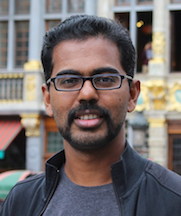 |
Prasanna BalaprakashPrasanna Balaprakash is a computer scientist at Argonne National Laboratory in the Mathematics and Computer Science Division. His research interests span the areas of machine learning, optimization, and high-performance computing. Currently, his research focus is on the design and development of scalable machine learning algorithms for solving large-scale problems that arise in scientific data analysis and in automating application performance modeling/tuning. The overarching goal of his research is to advance the state of the art in scientific data analysis and high-performance computing by increasing the applicability of machine learning and numerical optimization approaches and by improving their performance on leadership-class systems. |
[email protected] |
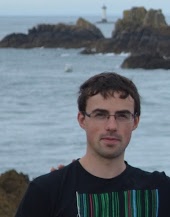 |
Mickael BinoisMickael Binois is a postdoctoral researcher in the Mathematics and Computer Science Division of Argonne National Laboratory. Previously, he worked with Robert Gramacy at the University of Chicago, also as a postdoctoral researcher. His research interests include surrogate models (especially Gaussian processes), computer experiments, Bayesian optimization (constrained, single or multi- objective) and uncertainty quantification. |
[email protected] |
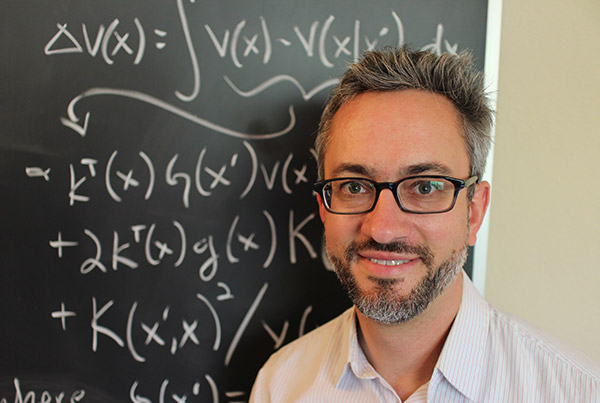 |
Robert GramacyRobert Gramacy is a Professor of Statistics in the College of Science at Virginia Polytechnic and State University (Virginia Tech). Previously he was an Associate Professor of Econometrics and Statistics at the Booth School of Business, and a fellow of the Computation Institute at The University of Chicago. His research interests include Bayesian modeling methodology, statistical computing, Monte Carlo inference, nonparametric regression, sequential design, and optimization under uncertainty. |
[email protected] |
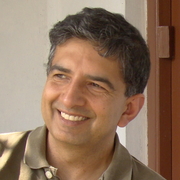 |
Salman HabibSalman Habib is the Group Leader of the Cosmological Physics and Advanced Computing Group in the High Energy Physics Division at Argonne National Laboratory; he also holds appointments in the Mathematics and Computer Science Division and the University of Chicago and Northwestern University. Habib’s research interests span astrophysics, accelerator physics, classical and quantum dynamical systems and control theory, advanced statistical methods and machine learning, condensed matter physics, atomic and quantum optics, and particle physics. His current focus is on studies of dark energy, dark matter, neutrinos, and primordial fluctuations. This work involves a number of research directions at the interface of advanced statistical methods, machine learning, and parallel supercomputing. Habib is the PI of the SciDAC-4 project. |
[email protected] |
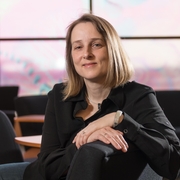 |
Katrin HeitmannKatrin Heitmann is a Physicist and Computational Scientist at Argonne National Laboratory in High Energy Physics and Mathematics and Computer Science Divisions. She is also a Senior Member of the Kavli Institute for Cosmological Physics at the University of Chicago. Before joining Argonne, Heitmann was a staff member at Los Alamos National Laboratory. Her research currently focuses on computational cosmology, in particular on trying to understand the causes for the accelerated expansion of the Universe. She is a member of several major astrophysical surveys that aim to shed light on this question and is the computing coordinator for the Large Synoptic Survey Telescope Dark Energy Science Collaboration. |
[email protected] |
 |
David HigdonDavid M. Higdon is a professor in the Social Decision Analytics Laboratory at the Biocomplexity Institute of Virginia Tech. Previously, he spent 10 years as a scientist and group leader of the Statistical Sciences Group at Los Alamos National Laboratory. He is an expert in Bayesian statistical modeling of environmental and physical systems, combining physical observations with computer simulation models for prediction and inference. Dr. Higdon has served on several advisory groups concerned with statistical modeling and uncertainty quantification and co-chaired the NRC Committee on Mathematical Foundations of Validation, Verification, and Uncertainty Quantification. He is a fellow of the American Statistical Association. |
[email protected] |
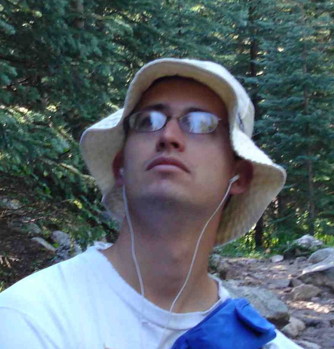 |
Earl LawrenceEarl Lawrence is a statistician and staff member at Los Alamos National Laboratory in the Statistical Sciences Group. His expertise is in uncertainty quantification and diverse applications of statistics to problems in physics and engineering. |
[email protected] |
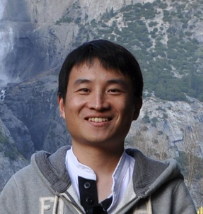 |
Yuewei LinYuewei Lin is an assistant computational scientist, Computational Science Initiative, at Brookhaven National Laboratory. His expertise is in deep learning (convolutional neural networks, recurrent neural networks), object detection/classification, and transfer learning. |
[email protected] |
 |
Zarija LukicZarija Lukic is a research scientist in the Computational Cosmology Center at Lawrence Berkeley National Laboratory. His research combines (astro)physics and high-performance computing and he has published research articles in both physics and computational science. The main topic of his research is the formation of structure in the Universe, and different ways of determining cosmological parameters from sky surveys. His studies include modeling the Lyman-alpha absorption observed in spectra of distant quasars, evolution and properties of clusters of galaxies, internal structure and statistical properties of dark matter halos, among others. He is a member of the Dark Energy Spectroscopic Instrument (DESI) and Large Synoptic Survey Telescope (LSST) collaborations where he is engaged in the simulation working groups. |
[email protected] |
 |
Dmitriy MorozovDmitriy Morozov is a research scientist in the Visualization Group in Lawrence Berkeley National Laboratory’s Computational Research Division, where he has been since January 2011. Morozov received a PhD in Computer Science from Duke University in 2008. Before coming to LBNL, he spent two years as a postdoctoral scholar in Computer Science and Mathematics at Stanford University. Morozov’s research is in the field of computational geometry and topology. At LBNL he has worked on parallel computation of topological descriptors as well as on extracting geometric descriptors of porous materials. |
[email protected] |
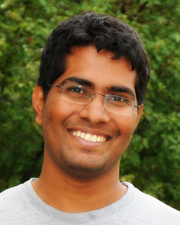 |
Nesar RamachandraNesar Ramachandra is a cosmology graduate student at the University of Kansas, currently working in the Cosmological Physics and Advanced Computing Group in the High Energy Physics Division at Argonne National Laboratory. His research area is the large scale structure of the Universe and he is also working on the implementation of statistical and machine learning methods for cosmological data analysis and fast prediction tools (emulators). |
[email protected] |
 |
Anze SlosarAnze Slosar is the Group Leader of the Cosmology and Astrophysics group in the Physics Department at Brookhaven National Laboratory. Slosar is noted for work on data and theory related to surveys of the large scale structure of the Universe, contributing recently to the BOSS, eBOSS, DESI and LSST surveys. |
[email protected] |
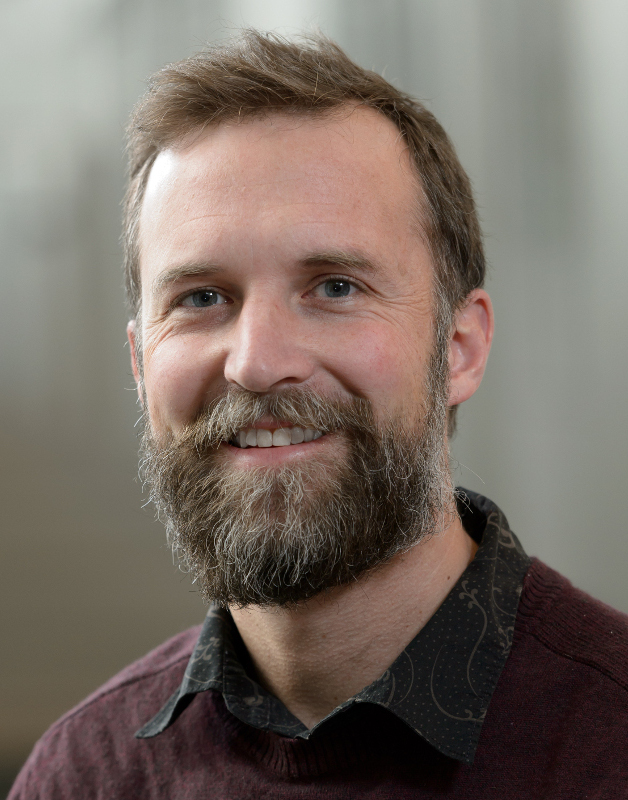 |
Stefan WildStefan Wild is a computational mathematician at Argonne National Laboratory and a Fellow in the Computation Institute at the University of Chicago. His primary research focus is on algorithms and software for numerical optimization and data analysis. Wild is currently developing model-based methods for derivative-free optimization that exploit additional structures often found in practical applications, including constraints, discrete variables, computational noise, parallel computing environments, and parameter estimation. In addition to numerical optimization, he is interested in machine learning and numerical linear algebra. |
[email protected] |
 |
Shinjae YooShinjae Yoo is s Computational Scientist in the Computational Science Initiative at Brookhaven National Laboratory. He received his Ph.D. and Master’s degrees from Carnegie Mellon University. His research interests include large scale data driven discovery on scientific data (physics, biology, neuroscience, climate, astronomy, etc), social media analytics, text mining, and scalable learning methods. |
[email protected] |
